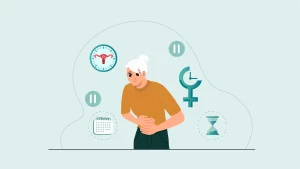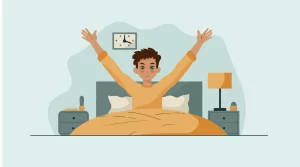Have you experienced itchy, watery eyes as spring approaches?
There’s a good chance that it’s an allergy.
For one in four French people, spring marks the return of very unpleasant symptoms such as a blocked nose, sneezing, watery eyes and itching. All these problems are characteristic of an allergy to the pollens of certain trees, plants and shrubs, also known as “pollinosis”.
Be aware that pollen is airborne in large quantities on warm, sunny days and that the pollen count is lower on rainy days or in cold, damp weather. One good reason not to complain about bad weather!
How do you distinguish dry eye from chronic eye allergies?
Dry eye and chronic eye allergies have similar symptoms.
- Dry eyes cause burning or gritty sensations in the eyes, redness and sometimes tearing.
- Chronic eye allergies can also cause redness and tearing, but the main distinguishing symptom is itching.
It is important to note what causes the irritation to intensify. If it is when the air pollen content increases or a cat is around, it is probably a chronic allergy.
Do chronic allergies cause dry eyes?
The arrival of spring and pollen can cause chronic allergies, with eye and respiratory symptoms. In some cases, these problems can lead to inflammatory reactions that irritate the mucous membranes, such as allergic conjunctiva and, in some cases, dry eyes.
People who already suffer from dry eyes may therefore experience a worsening of the ocular surface condition during the allergy season with chronic allergies.
The big question, therefore, is how to prevent allergies and minimise aggravation from dry eye syndrome at these times.
These are our top tips:
- Ventilate early in the morning for at least 15 minutes to expel pollutants, then close the windows to avoid letting pollens in.
- Install an air purifier (minimum level 14) in the room to capture allergenic particles.
- Don’t hang your washing outside.
- Opt for indoor clothing to avoid letting in pollen collected during the day.
- Wash thoroughly: when you come back from an outing, rinse your child’s hair with water, which is a real allergen catcher, as well as the face and eyes.
- Download a pollen alert application that shows the level of pollen in your area.
IF THE PROBLEM PERSISTS, SEE AN OPHTHALMOLOGIST.




